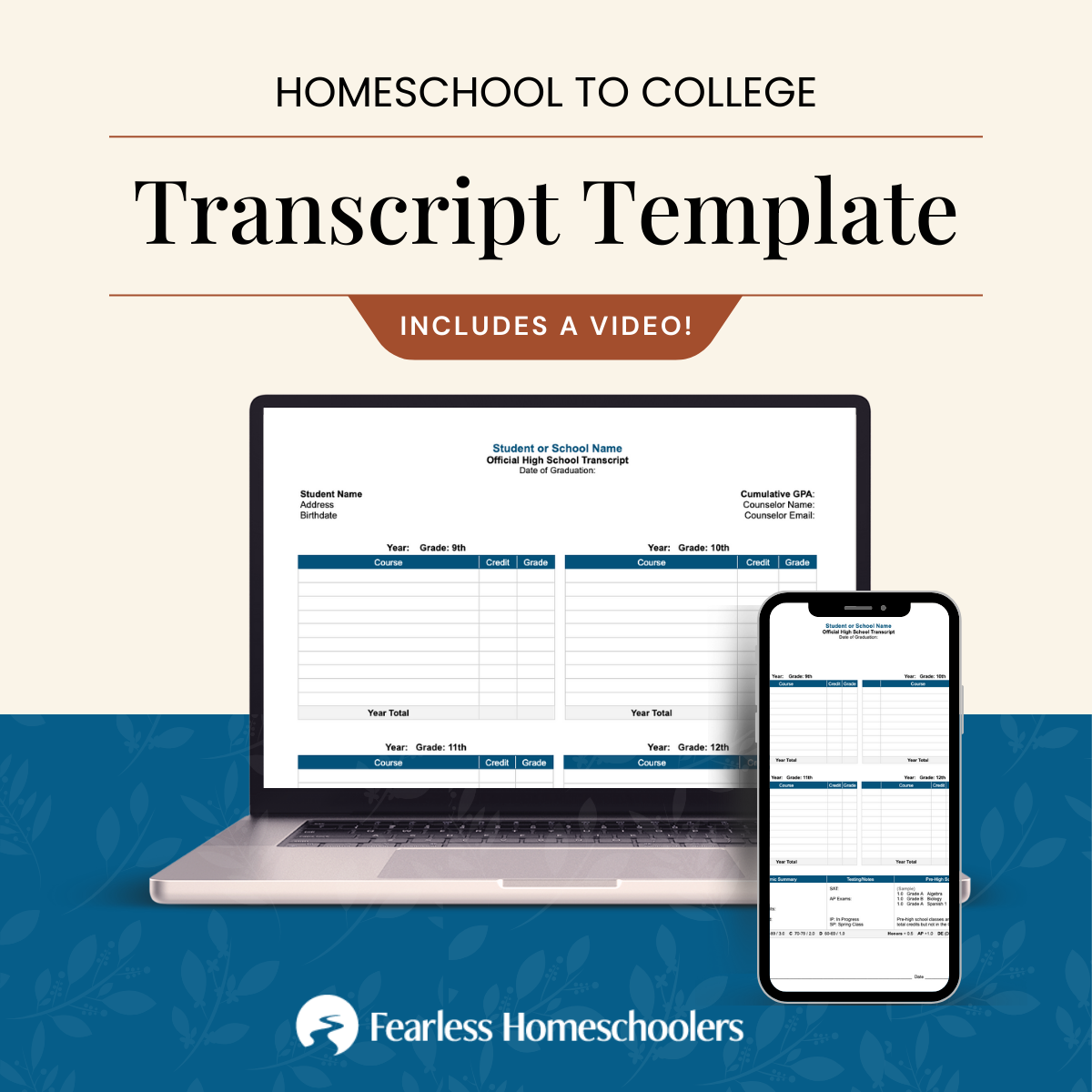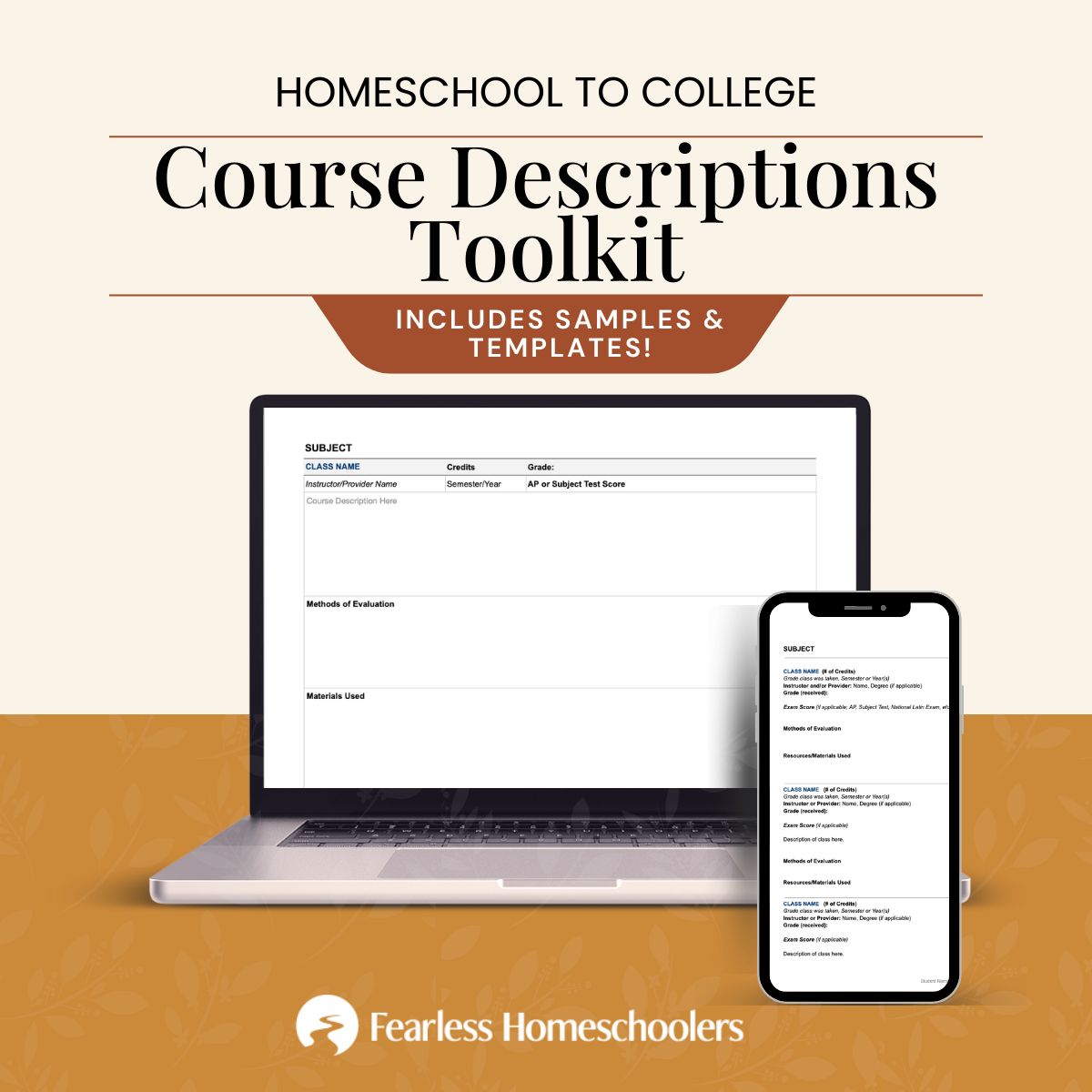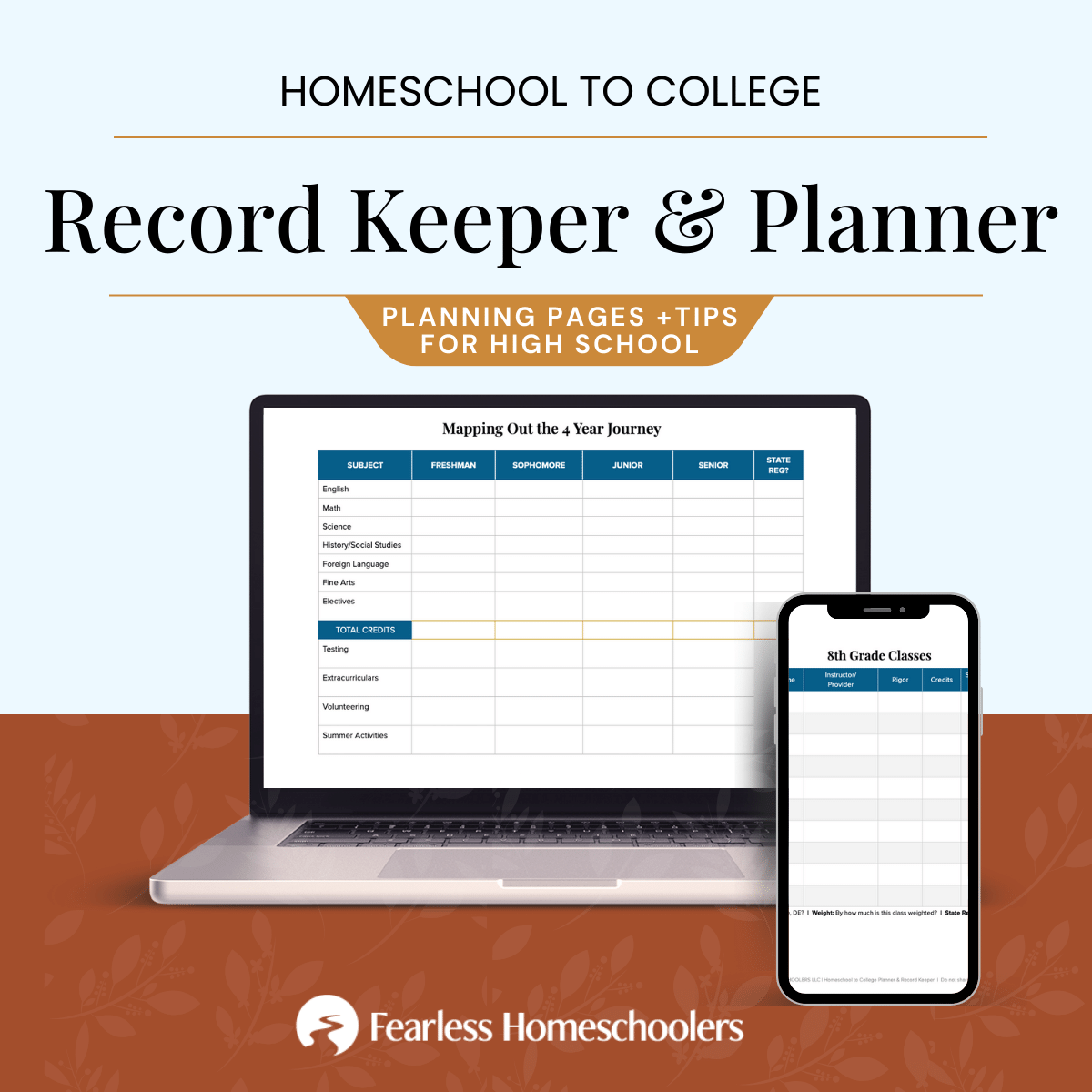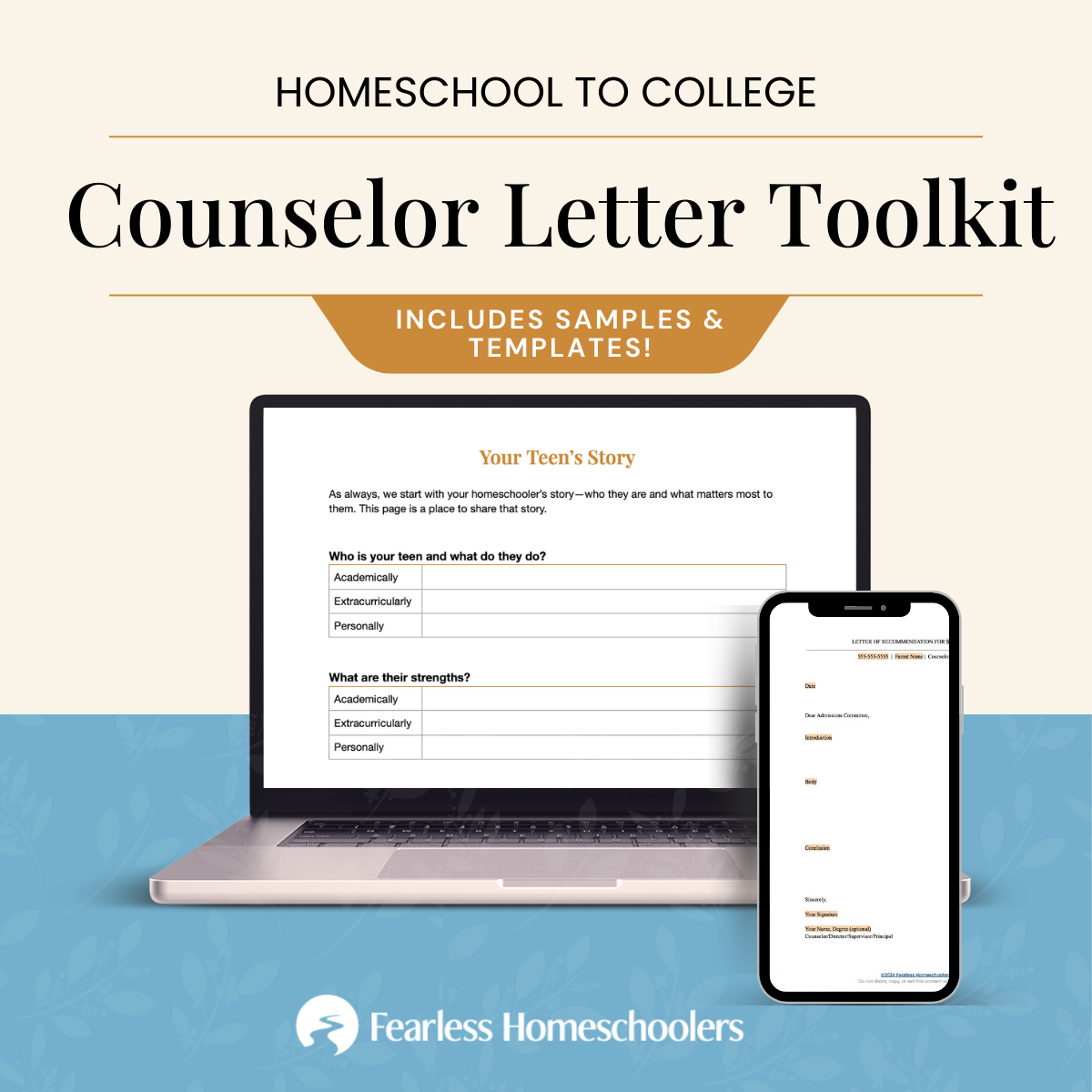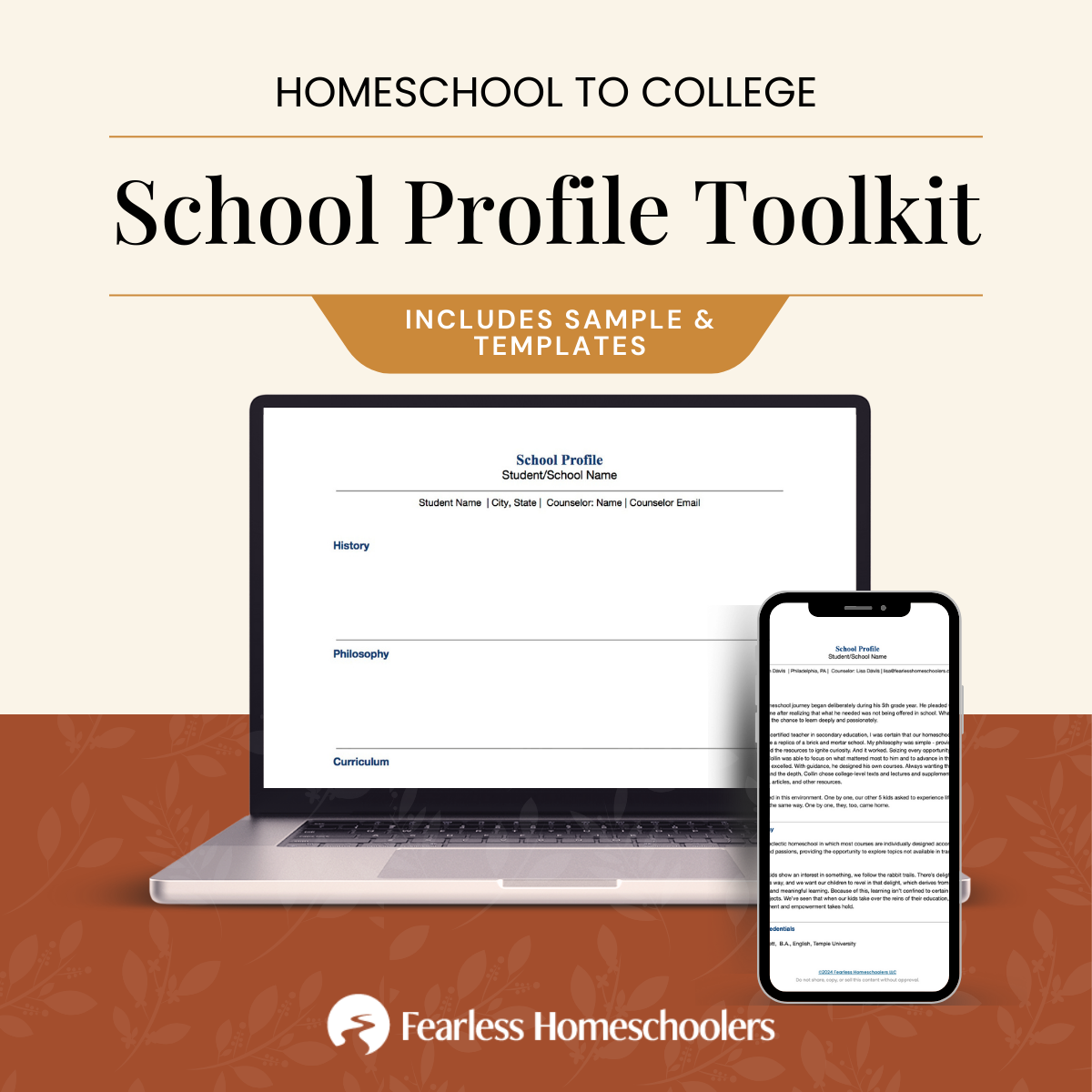The Homeschooler's Ultimate Guide to SAT and ACT Testing
When I picked up my oldest son from his first attempt at the SAT, I asked what the most difficult part was.
“Signing my name in cursive.”
We still laugh about it today.
But the reality was that his answer surprised me. He and I were unprepared for the world of SAT and ACT, especially for homeschoolers.
Lucky for your teen, their signature is no longer required. But the world of testing seems to be changing by the moment.
I created this ultimate guide so you’re not surprised by it all.

Below is a table of contents for you to easily navigate this blog post during future visits. It’s a long one (but filled with lots of golden nuggets).
- What the tests are and why they’re important
- Should Homeschoolers take the SAT and ACT exams?
- How the tests are different from one another
- How to register, prep, and take the SAT and ACT
- Test-optional and whether or not to submit
- FAQs about the SAT and ACT
What are the SAT/ACT exams?
The SAT and ACT are standardized tests designed to assess students’ readiness for college. Colleges often use scores on these tests as part of their admissions process.
The SAT is designed by College Board, and the ACT is designed by ACT.
While both exams evaluate a student’s knowledge and skills in areas such as reading, writing, and math, the ACT includes a science section.
Why are they important to college admissions?
It’s hard to believe that a student’s potential should be boiled down to one score that occurred in one sitting.
It’s also easy to see that test prep and costs give certain demographics an advantage while disadvantaging others.
For sure, the tests definitely have their critics.
But why do some colleges prefer them?
In the last 10-15 years, and especially since COVID, colleges have seen huge amounts of grade inflation. At the same time, ACT and SAT scores have declined. Grades can no longer be relied upon as an indicator of success.
And, for more selective schools, it’s crucial that admitted students do well in their high-rigor environment. Standardized test scores provide that additional metric in a sea of applicants who have all A’s.
Do homeschoolers have to take the SAT or ACT?
Nope. Homeschoolers aren’t required to take the SAT or ACT, but many colleges will consider the scores as part of their admissions process.
And, sometimes, homeschoolers are required to submit an SAT or ACT score even for schools that are test-optional for most applicants.
Note: Some homeschoolers take the SAT or ACT in 7th grade for “talent searches,” such as Duke TIP or Johns Hopkins CTY.
Why they’re important for homeschoolers
Context. Context. Context.
I know I sound like a broken record, but colleges need the context behind a homeschooler’s courses and grades.
Here’s what Karen Kristof, assistant vice president and dean of admission at Colorado College, has to say (Inside Higher Ed, December 2021):
“Because sometimes information is a little bit harder to obtain and contextualize with homeschooled students, that standardized testing gave us another metric.”
Time and time again, this is the sentiment I hear from admission officers.
Should Homeschoolers Take the SAT or ACT?
So let’s recap.
Here’s why some colleges prefer standardized tests for admissions:
- Test scores are better predictors of success once on campus.
- Since COVID, grades cannot be relied on due to excessive grade inflation.
- GPAs are meaningless since schools have varying scales.
And here’s why I think your homeschooler should take the test:
- More data adds more context, especially for homeschoolers.
- Scores can validate a homeschooler’s grades.
- Some schools require scores from homeschoolers.
- Some scores guarantee automatic admission.
- Some schools use scores to determine merit aid.
- Even within an institution, certain majors may require them while others won’t.
- Policies may change by the time your teen applies.
- Sometimes certain honors programs require them.
- Your teen’s plans might change.
- Exposure to other students, classrooms, test-taking is an extra bonus!
Of course, you need to do what’s best for your family and your teen. Your values and goals may not align with my recommendation.
But think of it this way. Be prepared. Have your teen take the test. They can always choose to be test-optional when senior year rolls around.
Good news: Your teen can take the test and choose not to submit it later on.
How are the SAT and ACT different?
Alright, let’s talk about the differences between the two.
SAT
- SAT goes deeper
- Offered in digital format only
- Adaptive, meaning it adapts to the student’s progress in specific sections
- 2:14 hours long
- Highest composite score: 1600
- Reading, Writing, and Math sections
- Math: includes some trigonometry and precalculus
- Math: focuses more on algebra
- Math= 50% of your score
ACT
- ACT goes broader
- Paper format; digital format at selected testing sites
- Faster test; less time per problem
- 2:55 hours long
- Highest composite score: 36
- Reading, writing, math, AND science sections
- Science section asks students to interpret data
- Math: includes some trigonometry
- Math: focuses more on trig and geometry
- Math= 25% of your score
ACT Changes!
The ACT rolled out changes this year. Here’s what you can expect:
Shorter Duration: The test will be 2 hours and 5 minutes with the total number of questions going from 215 to 171. Students will get more time for each question.
Optional Science Section: The Science section will become optional. However, if your teen intends on being a STEM major, it’s best to include it.
Updated Scoring: The Composite score will now average the English, Math, and Reading sections. If a student opts to take the Science section, its score will be reported separately, and a STEM score (average of Math and Science) will be provided.
April 2025: The new format will be available for students taking the ACT online.
September 2025: Both paper-based and online tests will adopt the updated format.
Do colleges prefer one over the other?
Nope. Not at all. Really.
Some states require one or the other for their high school students, so that’s why you might hear one mentioned over the other in your region of the country.
But colleges? They don’t have any preference.
Which one should your homeschooler take?
Take a good look at the differences above.
- Does one seem better suited to your teen?
- Is one easier to take where you live?
- Do your teen’s math skills lean in one direction or another?
- Would your teen prefer digital format or paper format?
- Would they prefer a faster-paced exam?
👉 The best way to choose the SAT or ACT is by taking official practice tests of each. Take them under timed conditions, and your teen and their score will let you know which to choose. Some teens take both.
When is the best time to take the SAT & ACT?
As long as your teen has enough pre-calculus under their belt, junior year is a great time to take the test. Early spring of junior year is most common.
Senior year is often too late, especially if planning to take it more than once.
But, as they say, timing is everything. And for these exams, there are a few other things to keep in mind.
First, take a peek at the test dates and score release dates on the College Board and ACT websites. Then, look at your college application timeline.
- How do the test dates align with application deadlines?
- How do they align with your teen’s math level?
- Will your teen have enough time to prep for the exams?
- Does your teen have a busy season with sports or performances or other events?
- Will they be busy with AP exams?
- Is there an opportunity to take it one more time, if desired
Prepping for the exams
When it comes to prepping for these exams, you really need to consider your teen’s willingness and motivation to put effort into it.
- Are they motivated to do this on their own or will they need the support of a private tutor or class?
- Do they need help with the basics or do they need to focus on the strategy?
For a motivated student who doesn’t need a deep dive into strategy, there are some great free online resources:
Bluebook App by CollegeBoard
Khan Academy
Scalar Learning
Schoolhouse
Free SAT Practice Tests
Free ACT Practice Test and Guide
Books for test prep
The Official SAT Study Guide
The Official ACT Prep Guide
Ultimate Guide to SAT Grammar
The Complete Guide to SAT Reading
College Panda SAT Math
College Panda Writing
28 New SAT Math Lessons: Intermediate Course
Online companies offering test prep
Compass Prep
Applerouth
Arborbridge Test Prep
Prep Scholar
Homeschool providers offering test prep
AIM Academy (SAT)
Mr. D. Math (SAT Math)
FundaFunda (ACT Tutoring)
Tip for your homeschooler: Don’t think that simply taking practice tests is a good way to prep. I tell my students they should spend more time understanding their incorrect problems than taking the practice tests. Encourage your homeschooler to dig into those problems and find lots of similar problems to solve.
Registering for the exams as a homeschooler
Registering for the exams is easy, but there are a few things to note.
Both the SAT and ACT ask for the name of your high school.
- For the SAT, enter your town and state, and it will spit out a list of high schools in your area. Below the list, there’s the option “Can’t Find Your High School?” Click on that, and you will see, “I am homeschooled.”
- The ACT makes things a bit easier. Once you enter your town and state, you’ll see “I am being homeschooled” in the dropdown list.
Other notes about SAT registration:
- The SAT requires your homeschooler’s GPA. Make sure you’ve calculated that using my GPA calculator.
- The SAT asks what kind of device you’ll use on test day, but “I don’t know yet” is an option.
When registering, both the SAT and ACT will ask questions about high school courses, activities, and intended majors. These questions will be sent to colleges for marketing purposes, so if you’re not interested in junk mail in your inbox or mailbox, don’t answer them. They’re not required.
The Day of the Exam
Heads up. On test day, your homeschooler will be expected to have a photo ID.
Accepted for both SAT and ACT: a driver’s license, state-issued non-driver ID, or passport.
If your teen doesn’t have one of those, you may use an SAT or ACT Student ID form. These forms must be printed out and notarized. A photo will also be required.
How to find out if a college requires the tests for homeschoolers
This is pretty easy.
- Head to the Admissions page and see if they have a page specifically for homeschoolers. There, they will tell you about any special requirements.
- Call or email the admissions office and ask. If you can’t readily find the information on the school’s website, reach out. Their job is to support you, and they’ll happily do so.
Test optional, test-blind and test-flexible
Things are changing quickly in the college testing landscape. Let’s get you up to speed.
- Test-optional schools: Schools that allow students to submit or not to submit test scores.
- Test-blind schools: Schools that don’t consider scores even if sent.
- Test-flexible schools: Schools that allow a student to choose from a variety of tests: SAT, ACT, APs, IB.
But most schools are test-optional. I don’t have to submit scores!
I hear this all the time. And many families are missing the nuances.
Sure, many schools are test-optional, and some have been test-optional for decades. And they truly consider the application holistically when making their decision.
This works wonderfully when the rest of an applicant’s profile matches what they’re looking for.
And, for some homeschoolers, not taking standardized tests makes sense. And plenty of schools will happily accept them without those scores.
But know this. Applying test-optional at schools out of your teen’s academic profile doesn’t suddenly place them on an even playing field.
Your homeschooler still needs to show the rigor and grades that college is used to seeing.
To submit or not to submit
When I work with my 1:1 families, I put a lot of thought into the decision to go test-optional or not. Sometimes, I reach out to colleagues for their opinion. It’s not always an easy decision.
Here’s what I consider:
- Are the student’s scores in the middle 50th percentile or above?
- Does the rest of the application show appropriate rigor (equal to the college’s stonger applicants)
- Is there evidence of outside instructors and grading?
- Is it a school that’s always been test-optional?
- Does the student have strong and interesting extracurriculars for that particular school?
- Could the student possibly fulfill any institutional priorities?
- Is that score actually a strong one considering your homeschooler’s background, available resources, story?
Sometimes the decision is easy for me. Other times, not so much.
Ask yourself the questions above, and if you need 1:1 support, head over to my consulting page.
Sending Score Reports
Sending scores to colleges is easy. Before your application deadlines, head into your College Board or ACT account and request score reports for each college on the list.
- Many colleges will allow you to pick and choose which score reports to send.
- Some schools may take only the highest subscores (called superscoring).
- Only a few schools require that all scores be submitted.
About those Free Score reports
When signing up for the exams, students will be asked if they’d like to send score reports to a handful of schools. Many students select yes. Saves money, right?
But think about it.
You send those reports without knowing the scores. I can’t tell you how many times a parent or student panics because it was a low score.
You have two options:
- Don’t send. Wait and see what the score is.
- Send only to schools where you think you’ll get in, even with a low score.
Tip: Remind your teen to answer NO while registering or on the day of the exam if you don’t want score reports sent.
Putting SAT and ACT scores on the homeschool transcript
Just like so much in this process, you get to choose whether or not to include test scores on the homeschool transcript. Most public schools leave scores off the transcript, but you’re not a public school.
When I work with families, I consider the student’s scores. Are they strong for the schools on the list? Do they add value? If so, I include them.
Important! If a student is applying as a test-optional applicant to at least one school, leave the scores off your homeschool transcript. You do NOT want schools to see them.
👉 Grab Your Homeschool Transcript Template HERE!
The student application
The Common Application asks students if they want to report their SAT scores and which ones. This question is NOT required. If a student is applying to at least one school as a test-optional applicant, they should answer no.
In the college-specific part of the Common App, there will be a question asking if a student would like to apply test-optional. They won’t report scores here, but they will need to answer yes or no.
FAQs
How many times should the tests be taken?
Some students take it once and done. Others are driven to improve their score.
I don’t recommend taking it more than three times. Often, the scores don’t improve at that point.
But, again. It depends on your teen’s personality and motivation!
What’s a good score?
- The average SAT score for 2023 was 1028.
- The average ACT score for 2023 was 19.5.
A good score? Instead, ask, “What’s a good score for my teen?”
Because a “good score” for one school is not the same as another’s. So start with your teen. Always.
Can I give my homeschooler high school credit for test prep?
Sure, you can if you like. Others include it as part of math class without acknowledging the test prep part in the course descriptions.
But here’s the thing. It won’t add any value to the transcript. It won’t give your teen a leg up in admissions.
How can I get a fee waiver?
Test and score report fees add up.
If they will be a hardship for you, you may qualify for a fee waiver.
- You can get them directly from College Board or ACT.
- You can also contact a local high school counselor to receive a fee waiver code, but you must provide proof of your eligibility (i.e., tax records or proof of enrollment in an aid program).
Fee waivers are good for the exam fees and score reports.
How can my homeschooler get accommodations?
Getting accommodations for the SAT and ACT can be arduous and frustrating, but it can and should be done if your teen needs them.
Here are a few helpful hints:
- Your teen must have an official diagnosis, and it must say that accommodations are necessary.
- You must check off that you are requesting accommodations when registering.
- After you’ve indicated that you need accommodations, each test has its own process for getting accommodations approved and for finding a test center willing to administer the test.
- You must start early. I’d recommend six months in advance.
- You’ll have to be persistent and will most likely have to call high schools directly to ask if they can accommodate your student.
Good news: Colleges have no idea when your teen applies that they received accommodations.
Conclusion
Taking SAT and ACT tests is a great way for your homeschooler to show outside evidence of college readiness. Even if you’re not sure if you’ll use them for college admissions, encourage your homeschooler to take them.
But keep this mind: There are plenty of wonderful schools out there that don’t require them. If taking the tests doesn’t make sense for your situation or your teen, they will still have wonderful options!
More on Grades and Scores on the Homeschool Transcript
What Every Homeschooler Should Know about APs
How to Show Colleges That Your GPA is the Real Deal
GPA Calculator
